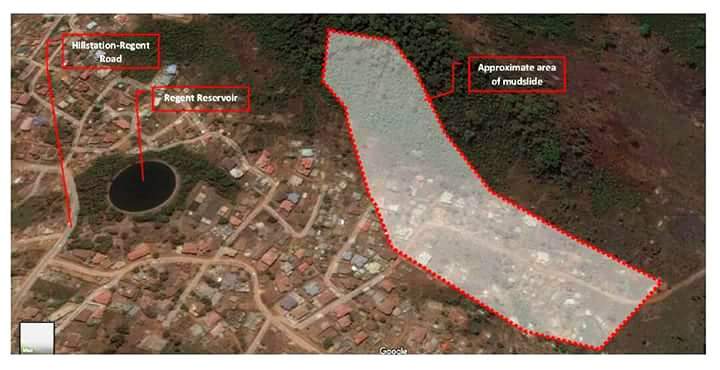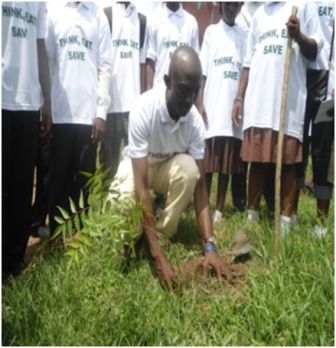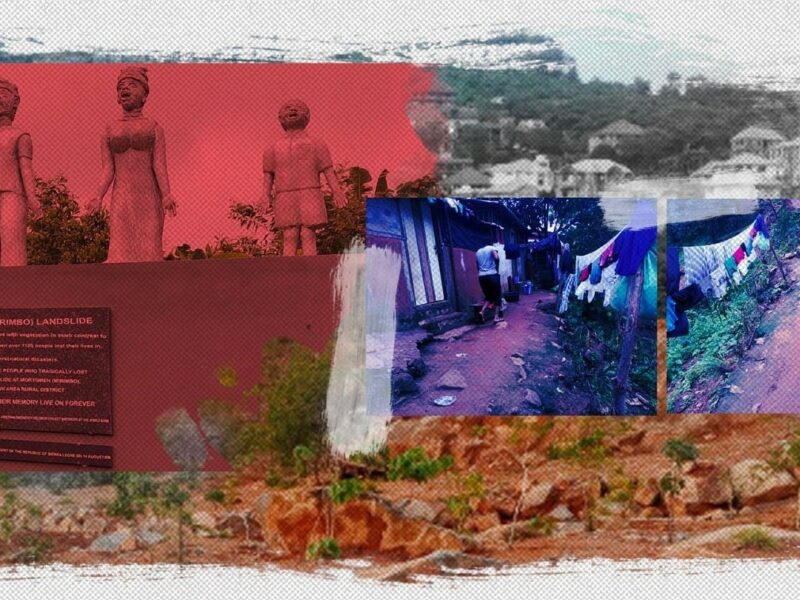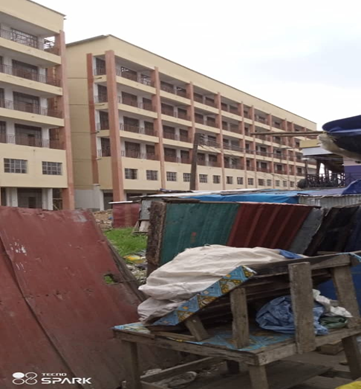Mudslide: rebuilding lives, what can be done?
Long time ago, mountains seduced men. Mountains have both religious and esthetic values to mankind. The gods are believed to dwell in the forests and therefore the apex of the mountains were scared and reserved for religious rites. The gods would send down commandments to mankind from above the mountains. Jabal Musa, otherwise known as Mount Sinai, is the most popular. Islamic, Christianity and Jewish religions preached that the Ten Commandments were issued to Moses in Mount Sinai.
Man’s curiosity propelled him to the hills. Is man not created in the image of God? So the best of men would want to reside closer to where the gods’ abode. Hence, empires and great cities have been built on hill tops.
In ancient history, mountains served as great defense facilities. Korea is known for its utilization of its natural environment in the Korean Peninsula with its plenty mountains as fortresses. King Herod the Great, fortified Masada, a mountain overlooking the Dead Sea in Israel. Today, this mountain means different things to different Jews. For some, it is the place where their great ancestors fell while combating oppression. For others, the place is a reminder of radicalism and a negation to compromise. Forget the current political divide in Israel, Masada’s significance in history has been well recorded.
Beyond defense, mountains have presented the world with the most beautiful of places to reside. Amongst the most spectacle places to visit in Africa are settlements built on mountains. Chebika, the mountain oasis in Tunisia is said to be a magical attraction. Uganda’s Virunga Mountains have stunning landscape where you can experience heaven and play with gorillas. The picturesque sceneries from above Table Mountain in Cape Town presents that city as one of the most beautiful in the world.
Freetown would easily be among the list but for bad governance impregnated with plain corruption. Human rats (thanks to the only man standing -Emerson Bockarie) have infested the country’s body politics. This explains why Sierra Leone continues to be doing badly in all spheres of human development.
Bordered by the Atlantic Ocean, blessed with rains for six out of twelve months and consecrated with seven big rivers and plenty streams, yet Sierra Leone cannot offer it’s people portable water. Shameful paradox! While clean drinking water is taking for granted in many cities these days, in Freetown residents still ‘toe-line’ (the local parlance for queuing) with jerry cans to fetch water. I don’t wish to mention the solar street lights that are a mockery of the sunshine hours with which the country is blessed.
If our authorities pulled their acts together, safe drinking water and electricity will not be an issue in Sierra Leone. And so the mountains, across the country, starting with Freetown will be great places to reside; they will be godly and heavenly. At the moment though, due to uncontrolled structures on the hills, they are human traps waiting the next heavy rainfall to wreak havoc on the people.
The Mount Sugarloaf incident is not the first in Freetown, indeed Sierra Leone. It probably might not be the last. It is however a significant episode that should be an eye-opener to urge the country into being serious about urban planning. The starting point of this seriousness is to build on one of the main positive outcomes of the mudslide misfortune, that is, the determination of the youths to help and to get things done. The young men around the Sugarloaf neighbourhood were the first to go into action to save lives; throwing themselves into the mud and rolling out stones, risking their lives to rescue anyone they can find.
News reports and videos show young men and women using their bare hands to dig in the mud and lift heavy concretes slabs in desperate efforts to heave people to safety. Some survivors owe their lives to them. Stories of the dead uprooted from underneath the mud by young volunteers are still being told.
Kelvin Kamara, the 27-year-old blogger, is one of such heroes. A short BBC documentary revealed his gallantry efforts in saving the lives of some 40 people. Kelvin braved the lashing waves, tumbling rocks and somewhat impenetrable mud as he moved house to house to pull out trapped neighbours. Kelvin, among others, require a medal of merit for his selfless struggle and contribution in limiting the statistics of the dead from the mudslide.
The mortuary staff could not handle the number of corpses brought in at short intervals; it took the great sacrifices of the mostly unsalaried youth to organize the bodies and provide them some respect. The hero of the youth volunteers at the mortuary was Lansana Kortor Kamara, a distinguished lawyer and recognized philanthropists. Kortor abandoned his chambers and made the mortuary his workplace for a week, he took off his suits and wigs to put on raincoat and boots to mobilise the youths into action. He used his own hard-earned cash to provide them food to boost their morale. For those of us who ‘rub-shoulders’ (local expression for being in close acquaintance) with Kortor were not surprised; he already has made his mark as a great giver- STEP-K, a local organization that is borne out of the desire to bring meaningful change to the people of Koinadugu during the Ebola era, can give testimonies about his great works. Forget Kortor, think of those youths who endangered their lives by exposing themselves to the possibility of diseases while handling corpses. The final dignity provided to the dead could not have been but for the youths who showed compassion to their deceased neighbours and provided them a fitting burial at the mass graves. These youths need to be celebrated.
What will be a fitting recognition for the youths who were the first responders to the floods and mudslide in Freetown? I offer opportunities for economic growth as a panacea.
Restoring and rebuilding the lives of the affected will cost a fortune. Millions of Leones have been donated to this effect. Immediate humanitarian food and non-food assistance have been poured on the victims in the various holding centres. Offers of some houses to be constructed by local construction companies for the victims have been made. Laudable as these ventures are, they stop short of addressing the future of the victims especially the youth. The mainstreaming of rebuilding efforts towards medium and long-term self-reliance of the young men and women should be centre staged. They need to be uplifted from ‘bra you borbor dae’ status and be made to be self-dependent.
Malcom X once said: “if you stick a knife in my back nine inches and pull it out six inches, that’s not progress. If you pull it all the way out, that’s not progress. The progress comes from healing the wound that the blow made.” The State-sponsored neglect and inability to enforce laws which exacerbated the flood and hence culminated to the massive devastation, cannot be rebuilt by bags of rice and sanitary pads. Progress cannot be made by giving handouts to the victims; it will be made by providing opportunity to the able-bodied young men to grow economically.
In rebuilding the shattered lives of the mudslide and floods in Freetown, there should be a deliberate effort to pay attention to the future of the unemployed youths. One way will be to generously and without tribal, regional or partisan rancor, pick at least one member from each family to be offered economic opportunity in the form of employment, business set up or the like. Create monitoring mechanisms to ensure economic growth for them such as establishing bank accounts with credit facilities and training to augment their resourcefulness. Any ideas that put the self-reliance of young unemployed at the centre stage is the answer.
The heroes and heroines of mudslide Sugarloaf, the youth volunteers, should be at the kernel of the rebuilding efforts. That’s the best medal for their meritorious services.
By Abubakarr Talib Jalloh – (The author is ex-journalist now working with the UN Refugee Agency).
Stay with Sierra Express Media, for your trusted place in news!
© 2017, https:. All rights reserved.






